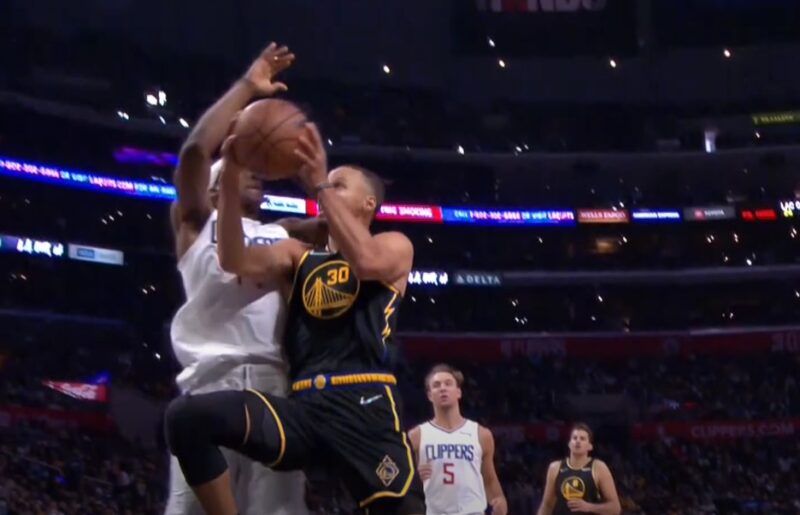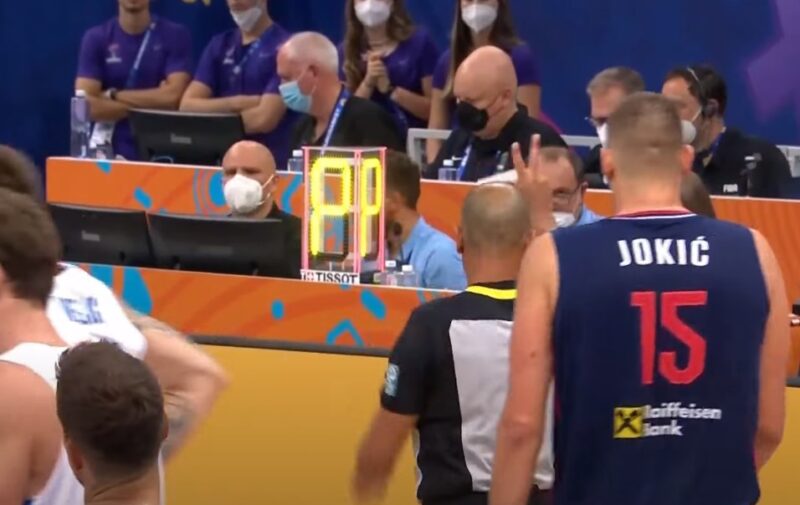Picture this: You’re on the edge of your couch, the game’s on the line, and suddenly, the ref’s whistle cuts through the noise. A foul is called, but what kind? Is it a personal foul that’s going to send your favorite player to the bench, or a team foul that might just give the other team some easy points at the line?
I totally get the frustration and the excitement that comes with these moments. Therefore, we’ll decode these rules together – no refs to argue with here, just straight-up basketball talk!
What Are Personal Fouls?

Personal fouls in basketball are infractions committed by individual players. These include a variety of actions such as illegal physical contact (like hitting, pushing, or blocking), and defensive violations. Personal fouls can be committed by both offensive and defensive players.
They are a critical aspect of the game, as accumulating too many personal fouls can lead to a player being disqualified from the match.
Impact on Players and Teams
The impact of personal fouls is significant. For players, accumulating fouls can lead to being benched to avoid disqualification, which can affect a team’s performance and strategy. Moreover, players with a high number of fouls might play more cautiously, which can be exploited by the opposing team.
For the team, having key players in foul trouble can disrupt game plans and rotations.
Strategic Considerations
Teams often have to adjust their strategies based on the foul situation of their players. Coaches might substitute players who are in foul trouble or adjust their defensive tactics to prevent further fouls.
Players, on the other hand, need to be aware of their foul count and adapt their playing style accordingly, balancing aggression with caution.
Team Fouls – Definition and Rules
Team fouls are cumulative personal fouls committed by a team during a playing period (a quarter or half, depending on the league). Once a team reaches a certain number of team fouls, the opposing team is awarded free throws for each subsequent foul.
This rule is in place to prevent teams from excessively fouling and to keep the game flowing.
Consequences and Game Dynamics
The accumulation of team fouls has a direct impact on the game’s dynamics. Once the limit is reached, every non-offensive foul committed by the team results in free throws for the opponent, regardless of the severity of the foul.
This can shift the momentum of the game, especially in close matches, where free throws can make a significant difference in the score.
Tactical Play and Management
Understanding and managing team fouls is crucial for coaches. Strategies may include rotating players to spread out fouls among the team, playing less aggressive defense to avoid fouls, or intentionally fouling at strategic moments.
Players must also be mindful of the team’s foul situation and adjust their level of aggressiveness on defense.
Comparison
| Aspect | Personal Fouls | Team Fouls |
|---|---|---|
| Impact on Players | A player accrues personal fouls | The team accumulates team fouls |
| Foul Limit | Usually, a player can accumulate up to 5 personal fouls before fouling out. | No specific limit for team fouls, but they lead to free throws for the opposing team. |
| Player Discipline | Requires individual discipline and awareness | Involves collective responsibility and awareness |
| Strategy Adjustment | Focuses on individual player adjustments | Requires team-wide strategic changes |
| Substitutions | A player fouling out is replaced by a substitute player | Team fouls may lead to bonus free throws for the opposing team or change in defensive strategy. |
| Timing of Fouls | Can occur at any time during the game | Accumulated over quarters or halves, leading to bonus situations. |
| Game Impact | May temporarily weaken a specific player | Can affect team performance as a whole |
| Free Throws | Personal fouls may lead to free throws for the fouled player or opposing team | Team fouls lead to bonus free throws for the opposing team. |
Balancing the Two in Gameplay

Balancing personal and team fouls is a delicate aspect of basketball strategy. Coaches must consider the foul situation when making substitutions and tactical decisions. Players need to be aware of their own foul count and the team’s overall situation to play effectively without putting the team at a disadvantage.
The Role of Fouls in Shaping Matches
Fouls play a crucial role in shaping the outcome of basketball games. They can disrupt the rhythm of players and teams, lead to key players being benched, and provide scoring opportunities through free throws.
Understanding and navigating the nuances of personal and team fouls is essential for success in basketball.
Tactical Implications
Coaches must constantly adjust their game plans based on the foul situation. For example, if a key player is in foul trouble, a coach might have to pull them out of the game at a critical moment, which could lead to a strategic reshuffle.
On the defensive end, teams might switch from man-to-man to zone defense to reduce the risk of personal fouls.
Player-Specific Strategies
Players with a propensity for fouling require specific strategies. Coaches might assign them to guard less aggressive opponents or use them strategically for short bursts to minimize foul risk. In contrast, players with fewer fouls might be tasked with more aggressive defensive roles.
Impact on Player Psychology
Foul trouble can also impact a player’s mental state. Players in foul trouble often exhibit more caution, which can make them less effective. Opposing teams might exploit this by targeting players who are playing conservatively to draw more fouls or score more easily against them.
Regulations Across Different Leagues

Different basketball leagues, such as the NBA, NCAA, and international leagues, have variations in their foul rules. For instance, the number of fouls leading to disqualification can vary, as can the number of team fouls allowed before penalty free throws are awarded.
These differences can affect how the game is played and coached. Players and coaches must adapt their strategies based on the specific rules of the league they are playing in. A strategy that works in the NBA might not be effective in international play due to differences in foul regulations.
This requires a versatile understanding of the game and the ability to adjust tactics accordingly. Referees play a crucial role in enforcing foul rules. Their judgment and interpretation of actions as fouls can significantly impact the game.
Consistency in foul calling is essential for fairness and to allow players and coaches to adapt their strategies effectively.
FAQs
Can a player still be in the game after committing five personal fouls in the NBA?
In the NBA, a player is disqualified from the game upon committing their sixth personal foul, not the fifth. This rule allows players a bit more leeway compared to college basketball, where disqualification occurs after the fifth foul.
How does the bonus situation affect the way free throws are awarded in basketball?
When a team is in the bonus situation (which occurs after the opposing team accumulates a certain number of team fouls in a half), every subsequent non-offensive foul committed by the defending team results in free throws. In the NBA, this is known as being in the “bonus”, and in the NCAA, it’s referred to as the “one-and-one” situation initially, then the “double bonus”.
Are there any differences in how personal fouls are counted in regular season games versus playoff games?
No, the way personal fouls are counted and the consequences of accumulating them remain the same in both regular season and playoff games in most basketball leagues, including the NBA and NCAA.
Can technical fouls contribute to a player’s personal foul count?
No, technical fouls are counted separately from personal fouls. However, accumulating technical fouls can also lead to penalties, including ejection from the game and suspension, depending on the league’s rules.
What happens if a player commits a foul but the referees don’t call it?
If a foul is committed but not called by the referees, the game continues without any penalty. However, many professional leagues, like the NBA, have post-game review processes where officials review the game footage to assess missed or incorrect calls, which can influence future refereeing decisions.
Can a coach challenge a foul call in basketball?
In the NBA, coaches have a limited ability to challenge certain calls, including personal fouls. However, there are restrictions on when and how often a coach can use this challenge. Other leagues, like the NCAA, currently do not allow coaches to challenge foul calls.
